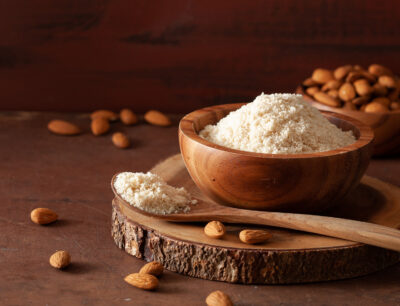
“No Guts, No Glory”
The Good Gut Game
“No guts, no glory” is an age-old saying that is not just metaphorical but also literal. A good gut health is the shortcut to a glorious and well-lived life. But what exactly is a gut and why are we so constantly worried about its health? Well, ‘gut’ is often used to refer to the gastrointestinal or digestive tract, this tract starts at the mouth, goes down a pathway called the oesophagus which empties into the stomach, continues to the small intestine, large intestine and then finally, the rectum.
Our digestive systems are made up of trillions of bacteria which make up our gut. These little bacteria are basically the key factors behind a good or a bad gut health. This is also known as your gut microbiome. Any kind of imbalance in the functioning of these bacteria can cause various inflammatory disorders in the body, leading to poor overall health.
Why is good gut health important?
A healthy gut means a healthy life. Your gut impacts all functions of the body. It aids in digestion, helps in proper absorption of nutrients in the blood and supports the immune system to name a few. An imbalance in the gut bacteria can also lead to chronic diseases like diabetes, irritable bowel syndrome (IBS), crohn’s disease, obesity, chronic inflammation etc. Digestive systems of a bad gut health are reflected in way of constipation, abdominal pain, diarrhoea, bloating etc. Whereas non-digestive symptoms often reflect in ways of acne, dandruff, dry eyes, painful periods, brittle hair etc.
Gut bacteria and obesity
Since the gut microbiome impacts how food is absorbed by your body and how the fats are stored, your gut health does have an effect on your weight. But is the effect strong enough to cause obesity? Well, yes! Research continues to show that poor gut health or “dysbiosis” has a major contribution to obesity. Obesity as a disease is linked to multiple factors, and dysbiosis or poor gut health is most likely one of them.
The gut-brain connection
Ever feel nauseous right before a presentation? Or feel little butterflies in your stomach when your crush walks in the door? Well, it’s not “all in your head”. The gut-brain connection is very real. The gastrointestinal tract is sensitive to emotion and different feelings like anger, anxiety, sadness and others trigger symptoms.
The brain’s impact on the stomach and intestines is direct. Gut distress can easily lead to anxiety, stress, or depression and vice-versa. This is because the gastrointestinal (GI) system and the human brain are intimately connected thereby establishing a direct relationship between gut health and mental health of an individual.
How can you improve your gut bacteria?
“Every time you eat is an opportunity to nourish your body.” – Shan Cooper.
It’s important to understand that building a strong and a resilient gut requires diet diversification, not diet restriction.
- You can improve good bacteria byeating a diet high in fibre. We, the Quali Clan have taken the efforts to have a separate section for the foods rich in fibre. You must consider adding a diversity of high fibre foods such as seeds, nuts, legumes, fruits and vegetables and fermented foods like yogurt, kimchi, and kombucha in your daily meals.
- Include prebiotics in your diet: Prebiotics are fibre that can only be digested by the gut bacteria. Prebiotics increase “good” bacteria that help ward off pathogens (bad bacteria) in your digestive tract and maintain overall good health.
If you’re a coffee-lover holding your breath to know if coffee is bad for your gut, we have some good news! Studies show that coffee actually helps improve bowel movement. Its intake has been shown to reduce the risk of several metabolic disorders too.
- Include more polyphenols in your diet to keep your gut microbes in balance. These are found in foods such as berries, dark chocolate, and tea. You can also check out the Schisandra Chinensis fruit for good gut health. It is known to have beneficial effects on metabolic diseases, including obesity, and is known to improve gut bacteria.
- Be active and exercise often, it helps promote good gut health.
- Have a healthy sleep cycle and learn to manage your stress.
Prescriptions don’t bring change, transformation in lifestyle does. Our health depends on these trillions of bacteria living in the gut, and we need to ensure we’re doing everything right to keep these good guys on the playground. So what are you waiting for? It’s time to level up your gut-game!
**We at Quainut love to keep our customers updated with the right knowledge and the latest trends. Stay tuned for more.
#lowgidiet


